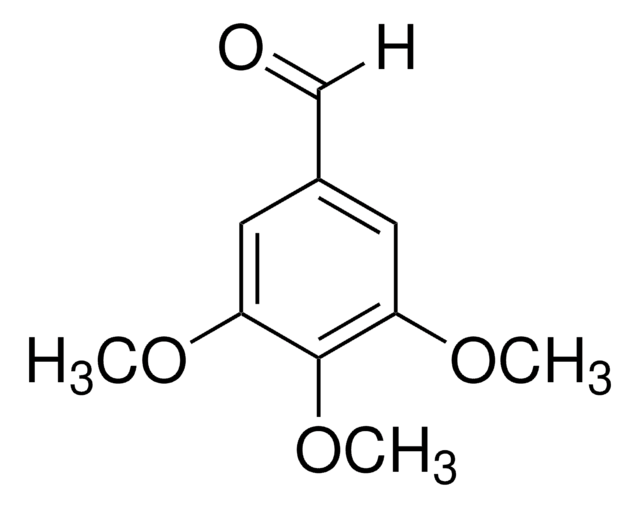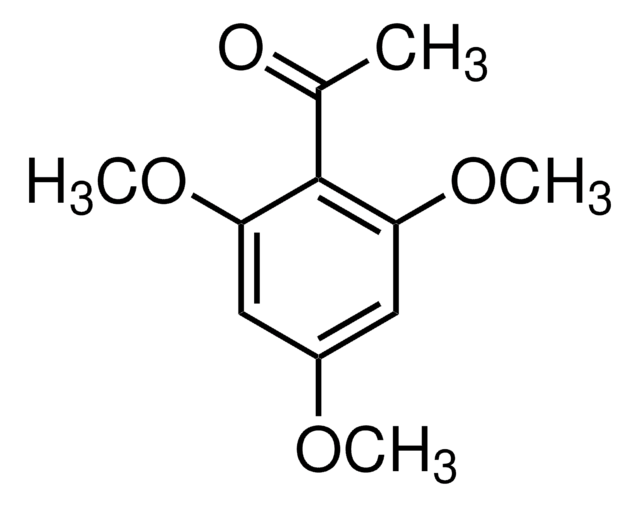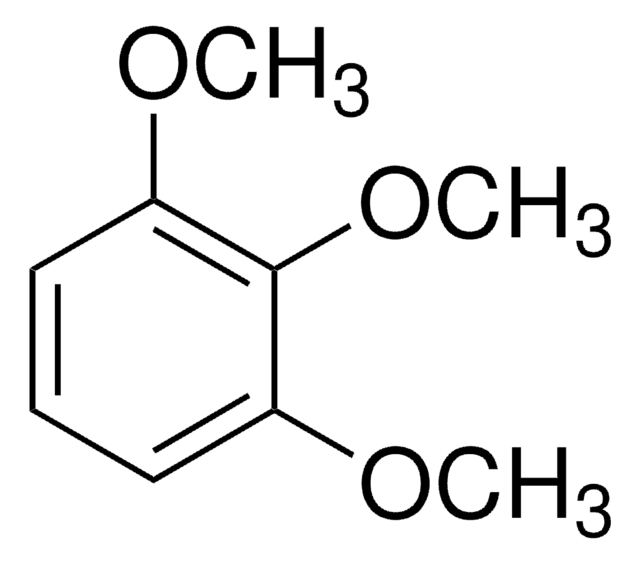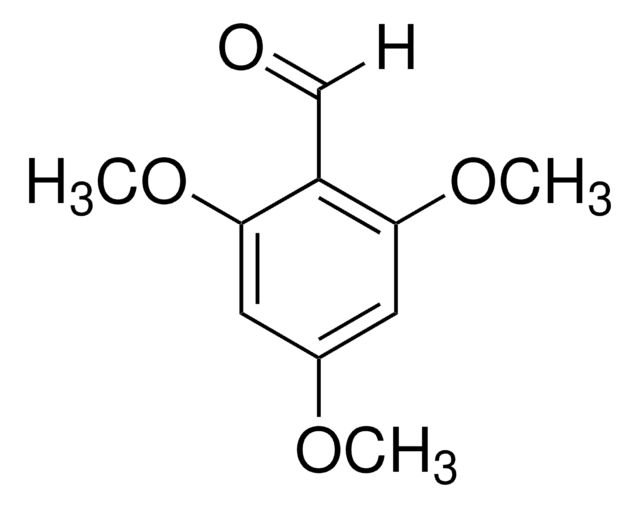All Photos(1)
About This Item
Linear Formula:
(CH3O)3C6H2COCH3
CAS Number:
Molecular Weight:
210.23
Beilstein:
1463133
EC Number:
MDL number:
UNSPSC Code:
12352100
PubChem Substance ID:
NACRES:
NA.22
Recommended Products
Quality Level
Assay
98%
bp
173-174 °C/10 mmHg (lit.)
mp
78-80 °C (lit.)
SMILES string
COc1cc(cc(OC)c1OC)C(C)=O
InChI
1S/C11H14O4/c1-7(12)8-5-9(13-2)11(15-4)10(6-8)14-3/h5-6H,1-4H3
InChI key
VUGQIIQFXCXZJU-UHFFFAOYSA-N
Looking for similar products? Visit Product Comparison Guide
Storage Class Code
11 - Combustible Solids
WGK
WGK 3
Flash Point(F)
Not applicable
Flash Point(C)
Not applicable
Personal Protective Equipment
dust mask type N95 (US), Eyeshields, Gloves
Certificates of Analysis (COA)
Search for Certificates of Analysis (COA) by entering the products Lot/Batch Number. Lot and Batch Numbers can be found on a product’s label following the words ‘Lot’ or ‘Batch’.
Already Own This Product?
Find documentation for the products that you have recently purchased in the Document Library.
Customers Also Viewed
Y Engelborghs et al.
The Journal of biological chemistry, 268(1), 107-112 (1993-01-05)
The kinetics of tropolone methyl ether binding to tubulin were measured by following the loss of colchicine binding capacity upon preincubation of tubulin with tropolone methyl ether. At 25 degrees C a bimolecular association rate constant of 2.7 (+/- 0.2)
Elshaimaa Sayed et al.
Journal of controlled release : official journal of the Controlled Release Society, 278, 142-155 (2018-04-02)
Encapsulation of poorly water-soluble drugs into mesoporous materials (e.g. silica) has evolved as a favorable strategy to improve drug solubility and bioavailability. Several techniques (e.g. spray drying, solvent evaporation, microwave irradiation) have been utilized for the encapsulation of active pharmaceutical
Vikas Srivastava et al.
Applied biochemistry and biotechnology, 166(6), 1401-1408 (2012-01-17)
The biotransformation potential of a selected Atropa belladonna hairy root clone (AB-09) had been evaluated with regard to three different aromatic carbonyl compounds, i.e., 3,4,5-trimethoxybenzaldehyde (1), 3,4,5-trimethoxyacetophenone (2), and 3,4,5-trimethoxy benzoic acid (3). The results demonstrated for the first time
Jiang Yan et al.
Science advances, 6(45) (2020-11-08)
Phenol is an important commodity chemical in the industry, which is currently produced using fossil feedstocks. Here, we report a strategy to produce phenol from lignin by directly deconstructing Csp2-Csp3 and C-O bonds under mild conditions. It was found that
Our team of scientists has experience in all areas of research including Life Science, Material Science, Chemical Synthesis, Chromatography, Analytical and many others.
Contact Technical Service












